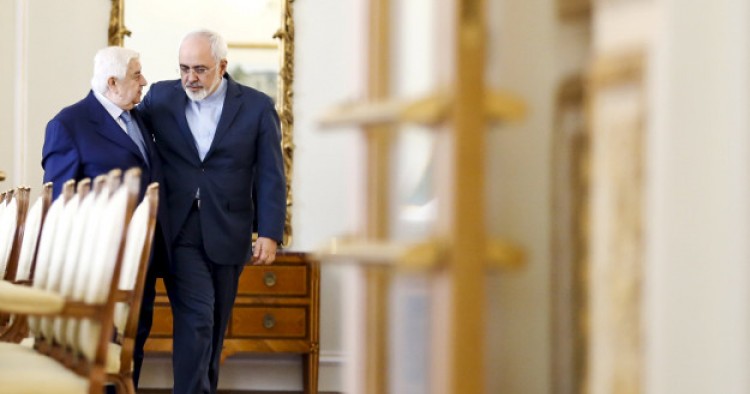Iran’s new ambassador to Syria, Javad Torkabadi, presented his credentials to Syrian Foreign Minister Walid Muallem on Wednesday, the Iranian media reports. He arrived in Damascus on Tuesday and was welcomed by Iranian and Syrian officials, including Syrian Social Affairs Minister Rima al-Qadiri. The last Iranian ambassador to Syria, Mohammad Reza Raouf Sheibani, left Damascus last October after five years of service.
Comment: Torkabadi’s appointment comes after a six-month hiatus. Since Sheibani’s departure, Iran’s embassy in Damascus had been led by a chargé d'affaires – drawing criticism from Iranian politicians and lawmakers given Syria’s strategic significance to Iran.
The news of Torkabadi’s appointment as the ambassador to Syria was first leaked by the Iranian media four months ago. But Foreign Ministry Spokesman Bahram Qassemi did not confirm it. “I have repeatedly announced that the process of appointing an ambassador is a lengthy and complicated one in all parts of the world. No one will be introduced until all required procedures are completed,” he replied to a reporter’s question. Some Iranian media outlets claim that the Foreign Ministry opposed Torkabadi’s appointment, without providing further details. Others claim Foreign Minister Javad Zarif nominated Torkabadi and President Hassan Rouhani approved it. But the fact that his appointment process took at least four months to be finalized indicates that there was a lack of consensus on his appointment between different centers of powers in Tehran.
Torkabadi is a low-profile career diplomat, but his appointments to key diplomatic missions at critical times suggests he has well-established connections with Iran’s security and intelligence agencies and potentially has close relations with Supreme Leader Ali Khamenei as well. According to the Iranian media, Torkabadi served as Iran’s ambassador to Sudan, Bahrain and Nigeria. He also served as Iran’s chargé d'affaires in Kuwait in late 1980s, when relations between Iran and Kuwait had reached a new low. In addition, he also was the head of the First Office of North and West Africa at Iran’s Foreign Ministry.
In an interview with Fars News Agency, Faizeh Moslehi, an anti-American revolutionary in post-Shah Iran and now a university lecturer, claimed she and Torkabadi worked for the “propaganda unit” of Iranian students who took over the American embassy in Tehran following the 1979 Islamic Revolution and held 52 American diplomats and citizens hostage for 444 days.
The Middle East Institute (MEI) is an independent, non-partisan, non-for-profit, educational organization. It does not engage in advocacy and its scholars’ opinions are their own. MEI welcomes financial donations, but retains sole editorial control over its work and its publications reflect only the authors’ views. For a listing of MEI donors, please click here.












